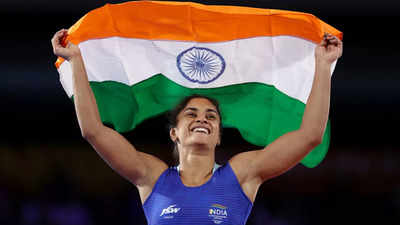
Phogat's journey to the final is marked by her outstanding performances throughout the tournament, where she showcased a blend of technical skill and athletic prowess. Her path to the final included overcoming some of the toughest competitors in the weight class, reflecting her rigorous preparation and dedication.
However, Phogat's success has ignited a political debate in India. Prominent figures such as Rahul Gandhi have used this moment to criticize the government for its perceived neglect of Phogat's earlier protests and struggles. Gandhi and other political leaders have pointed out that Phogat had previously highlighted issues within the sports administration, which they argue were ignored. This criticism highlights a broader discourse on the treatment and support of athletes by governmental bodies.
Phogat’s past protests have been centered around demands for better facilities and fair treatment for wrestlers. Her criticism of the sports authorities, which included calls for systemic changes, had attracted media attention but was not addressed to her satisfaction. Her historic Olympic run has now placed a spotlight on these issues once again, as political figures leverage her success to push for reforms.
The significance of Phogat’s achievement extends beyond the Olympic arena. It symbolizes a broader aspiration for Indian athletes and raises questions about the support structures in place for them. Her progress to the final has been hailed as a testament to her personal resolve and the potential for future success in Indian wrestling. It has also stirred discussions on how the country supports its athletes and the role of political engagement in sports.
Phogat's achievements come against the backdrop of an evolving landscape for Indian wrestling. Her success is not only a personal victory but also a reflection of the growing prominence of wrestling as a competitive sport in India. The sport, once considered a niche, has gained considerable attention and respect due to athletes like Phogat, who have elevated its status on the international stage.
As the Olympic final approaches, the focus remains on Phogat’s performance and the broader implications of her success. Her journey has inspired many and reignited conversations about the necessary support systems for athletes. The political discourse surrounding her achievement emphasizes the intersection of sports, politics, and societal issues, showcasing how individual success can have far-reaching impacts beyond the field of play.
Phogat’s story continues to evolve as she stands on the brink of Olympic glory, representing not just her own dreams but the aspirations of countless others who look to her as a symbol of excellence and perseverance.
